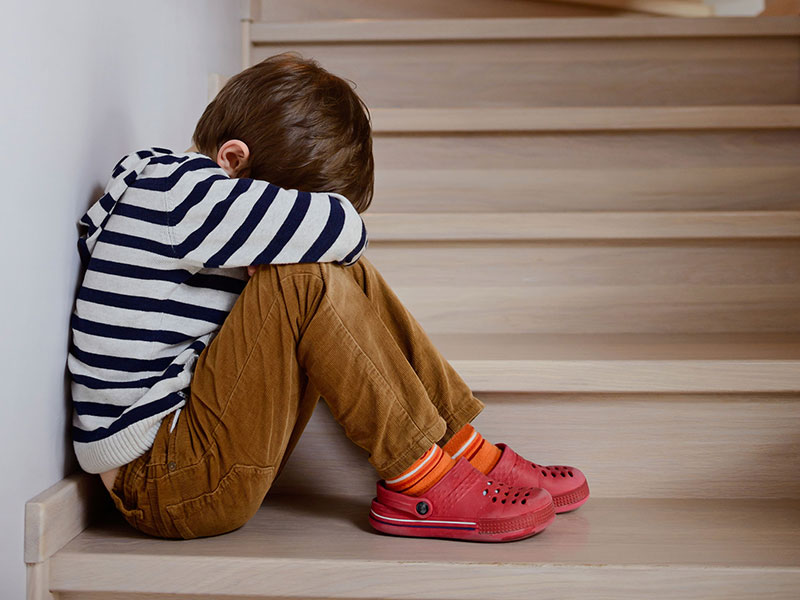Tackling anti-social behaviour in children

In a class of students, every child has a unique personality which develops over the course of the academic years until he or she becomes an adult. More than what is taught in the classroom, children learn from interpersonal interactions with other children in the class as well as their teachers. However, among the majority, there is a fraction of children who are unable to cope with their social environment and may display symptoms of anti-social behaviour. In such cases, timely detection and intervention can help in managing the child’s behavioural issues.
Defining anti-social behavior
Most people confuse the meaning of the term ‘anti-social behaviour’ to display signs of being an introvert. In reality, however, psychologists have defined the term as violating “social rules symptoms which include repeated and persistent patterns of social isolation, defiant or aggressive behaviour”. Though many children may display such signs, the ones who continue to repeat such actions without caring about the consequences are deemed as ‘anti-social’ and will need help before such behavioural symptoms acquire a permanent place in their personality.
Triggers for anti-social behavior
There is no fixed cause for a child displaying signs of anti-social behaviour. Among the wide array of reasons, the behavioural signs could be caused by a stressful environment at home or even lack of attention from parents who may be working long hours. Children learn to communicate in different ways and while some of them readily open up to their parents and teachers, others may be of a more reserved nature. It is therefore important on the part of the teacher as well as the parent to keep a close watch on their behaviour in the first few years of a child’s life.
Warning signs
Apart from being reserved or seemingly shy, a child may also display signs of aggression along with lying. Such a child is unable to understand that rules are being violated and therefore unable to realise the consequences of his or her actions. Studies in children’s behaviour have also suggested that restlessness combined with a poor ability to sustain their attention (signs of Attention Deficit Hyperactivity Disorder) has been found to influence anti-social behaviour in children.
The good news is that in most cases, the symptoms of anti-social behaviour can be corrected or in the least reduced if caught early. Along with a teacher, parents should keep an eye out for such symptoms. A relationship of feedback between a teacher and parents is a good way to keep tab on the childs progress, academically as well as behaviourally.
If you notice the aforementioned symptoms, seek help from professionals especially people who work closely with your child. This can help identify the triggers which may be setting off the symptoms of anti-social behaviour like loud sounds. In order to address such behavioural markers, you will need to get an assessment from a counsellor or psychologist. Most schools have an in-house counsellor which can be a good starting point. You can plan a consolidated approach with the teacher and the school counsellor you come up with a plan on ways to address the symptoms specifically at school and at home.
Parental intervention
Apart from therapy, there are some steps parents can take up which will help them guide their children. It is important to develop clear expectations and consequences of actions and focus on positive reinforcement. For instance, when your child does something right, reward him or her with something positive, like a chocolate or a play-date with friends. On the other hand, when the child does something anti-social, develop a set of consequences that are the same every time like take away a favourite toy or skip dessert.
It is therefore also important to use non-violent communication at all times while interacting with the child. Compassion and emotional support will help build a relationship with your child as opposed to punishment. When a child is showing signs of aggression or defiance, try to remain calm since yelling will only aggravate the matter.
In today’s day and age, working parents have no time to give one-on-one attention to their child. A child may then feel alienated and in turn imbibe the trait into his or her own behaviour. It is therefore important for every parent to ensure that they spend quality time with their child on a daily basis. In case you’re out working for long hours, try to speak to your child over the phone. Eating dinner together is another instance which can give you the time to check in with your child and show him or her that you’re interested in their life, and provides that one-on-one attention the child may crave. Adequate amount of attention from parents can make a child feel secure and confident which can reduce the chances of displaying signs of anti-social behaviour.
If required, the child can be enrolled in therapy sessions which will teach the child to learn better. With the help of therapy, the signs and triggers of aggression or isolation can be addressed and an individualistic approach will help the child to understand social norms. A child’s mind is vulnerable as well as sharp at a young age. A watchful eye and compassion from the parents will give the child a secure environment and will help them to grow into successful and confident professionals in the fields they are interested in.
The author is Fatima Agarkar, co-founder of KA Edu Associates
Also read: My eight-year-old son is very shy.HELP!















Add comment